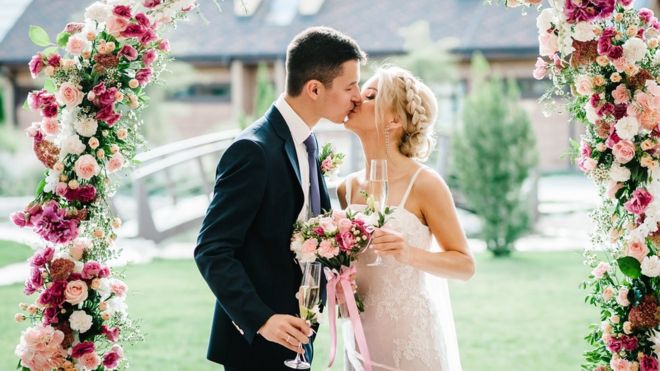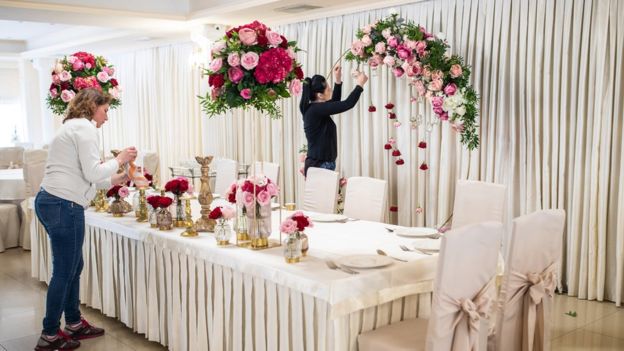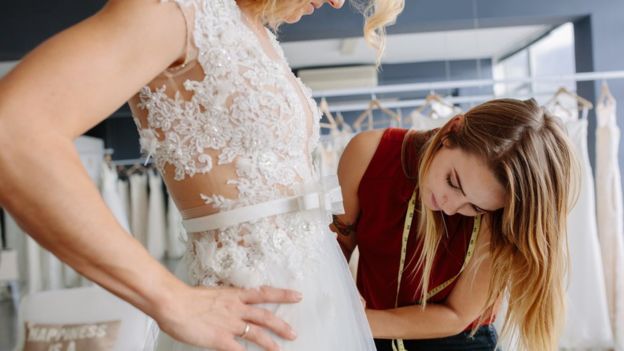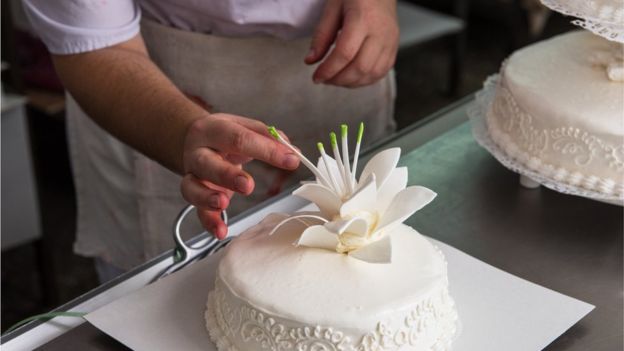
Around 250,000 weddings take place in the UK each year – adding an estimated £10bn to the economy.
Ceremonies this year have been devastated by COVID19, but Northern Ireland has allowed small outdoors weddings from Monday. There is no official word yet about the rest of the UK.
If your wedding was cancelled, or you are thinking about postponing, what are your rights?
Are weddings allowed at the moment?
Only in exceptional circumstances.
Boris Johnson banned weddings and christenings when lockdown started on 23 March, and that guidance is still in effect.
However, the government is looking into allowing small weddings to take place again in England. This may be as soon as June, but bigger celebrations are unlikely to be permitted until later on. Weddings in Wales and Scotland are also currently on hold.
Northern Ireland has allowed weddings to take place if one partner is terminally ill, and will allow outdoors weddings with 10 people present from 8 June.
Some English councils have been granted emergency powers to allow weddings where one partner is ill.
What should I do if I am due to get married soon?
If your wedding cannot take place, or you feel it will be too different from the day you wanted, it is generally better to postpone rather than cancel it.
Check alternative dates with your venue as soon as possible, and then ask your suppliers if they would also be able to switch.
Couples ”do need to be understanding of what venues and suppliers are going through at the moment”, says Henrietta Dunkley of Ellis Jones Solicitors. She specialises in dispute resolution, and is due to get married in August.

Many venues and suppliers are likely to have lost significant sums of money, so try to find a solution that works for everyone, she advises.
What if I want to cancel?
If your ceremony was due while weddings were banned, you should generally be entitled to a full refund if you don’t want to postpone.
The Competition and Markets Authority (CMA) says in most cases this would be if:
- A business cancels on you
- The lockdown means a business can’t provide a service
- You can’t proceed with the event because of the lockdown
An exception is the costs a business has incurred on your behalf already, such as a wedding meal tasting or a dress fitting.
As a result, venues and suppliers may be entitled to keep all or part of your deposit, but consumer rights law states they must give you a breakdown of costs.

If your wedding is coming up and may technically be allowed to take place, that’s where things become trickier.
Read the small print in your contract to check the rules on cancellation or date changes of the businesses you are using. And then ask them what they are prepared to offer.
Under consumer rights law, contract clauses that could be deemed unfair may be unenforceable, even if you previously agreed to them. Any ”non-refundable” deposit can only have been a small percentage of the total price.
Can I claim on wedding insurance?
Most wedding insurance does not cover a ”government act”, so it is unlikely to pay out if the lockdown affected your wedding.
A few wedding insurers are paying out now under some circumstances. For example, John Lewis suggests it will refund you if restrictions mean your wedding cannot be held and you can demonstrate you have tried to recoup the money from your venue and suppliers.

Many, if not all insurers are not selling new wedding policies, so this only covers existing agreements.
If not, you may have to register a claim with the administrator or can claim up to £30,000 per supplier from your credit card company for services not rendered, under section 75 of the Consumer Credit Act.
If you paid on debit card you may be able to secure a refund under the chargeback scheme.
